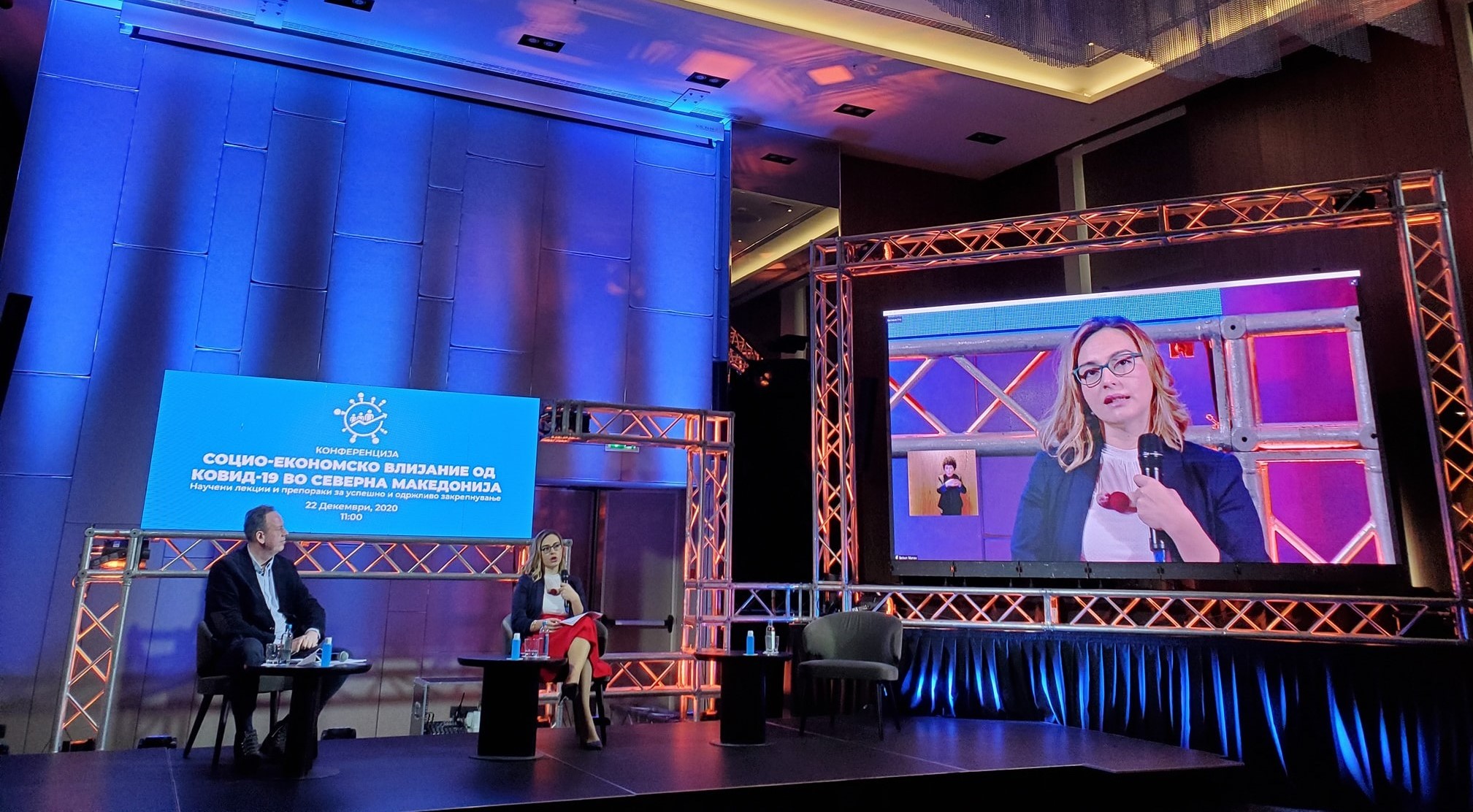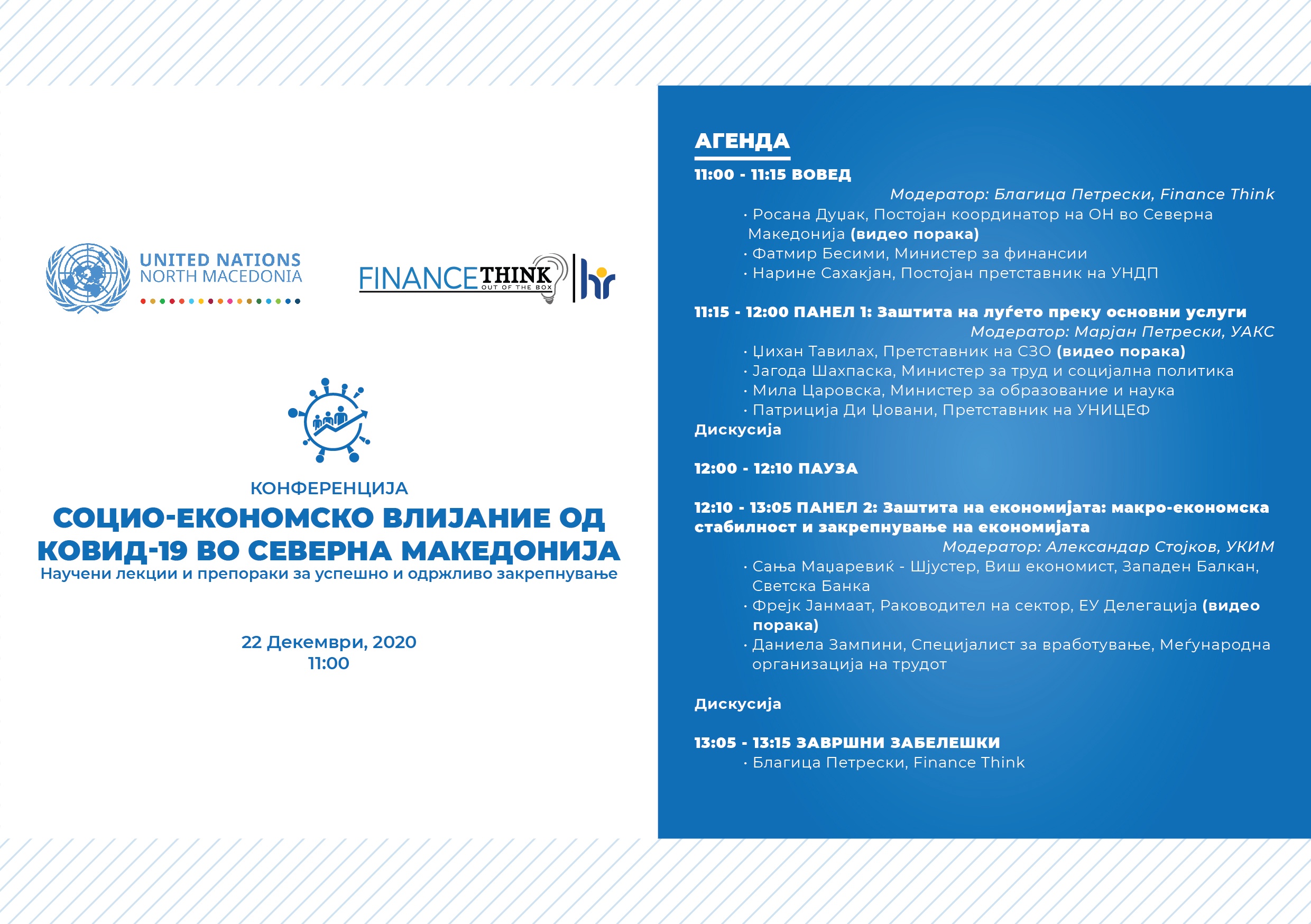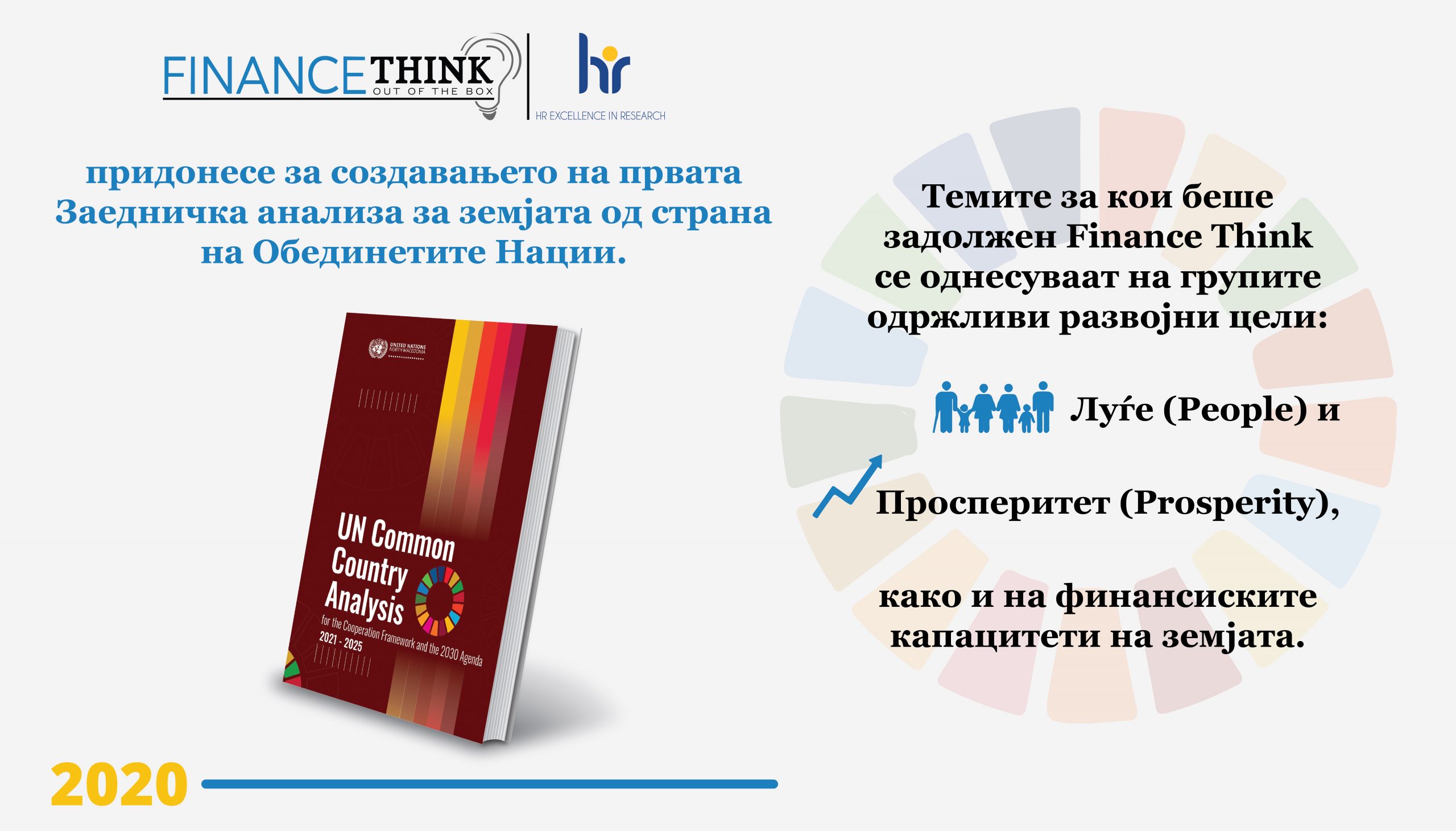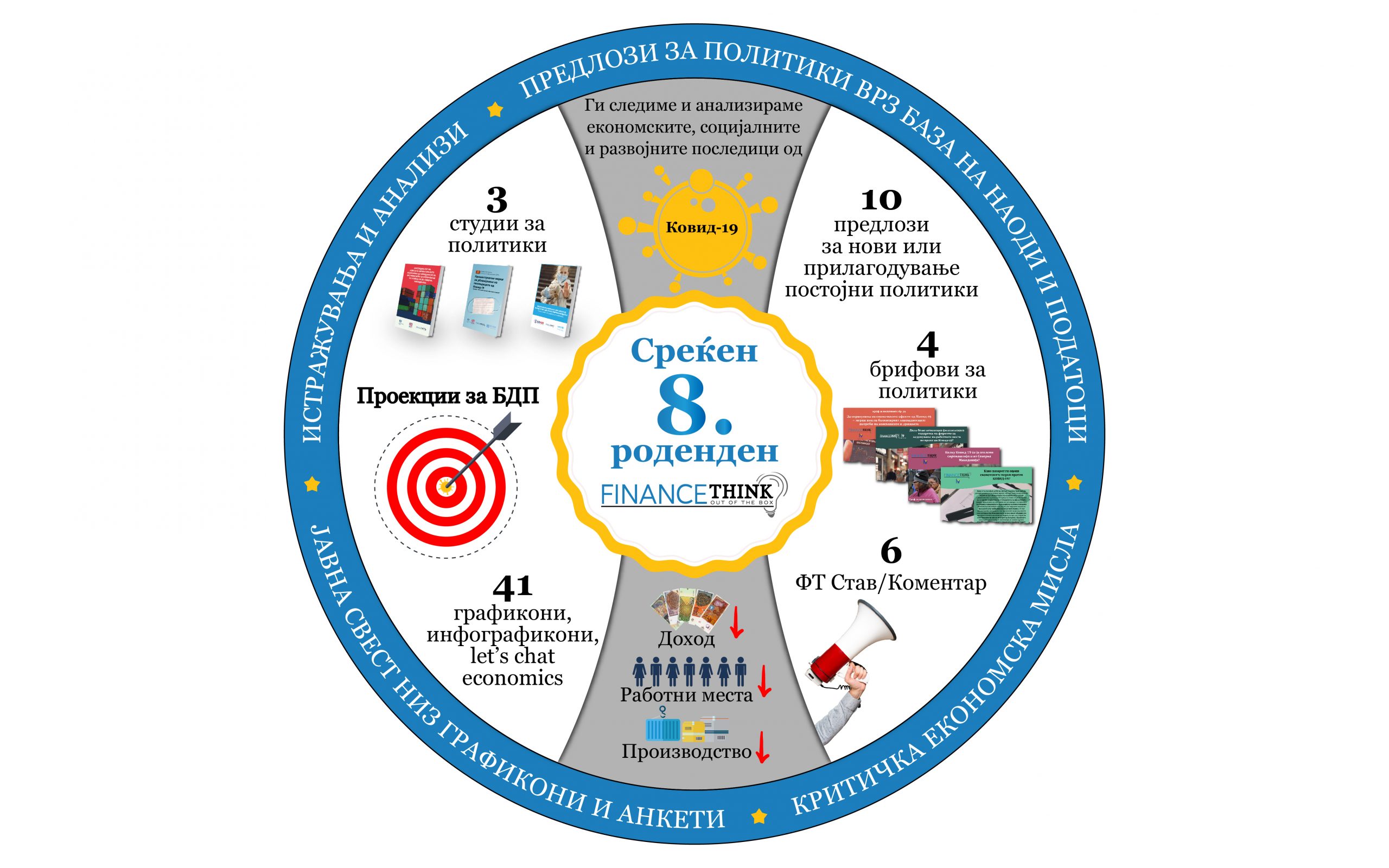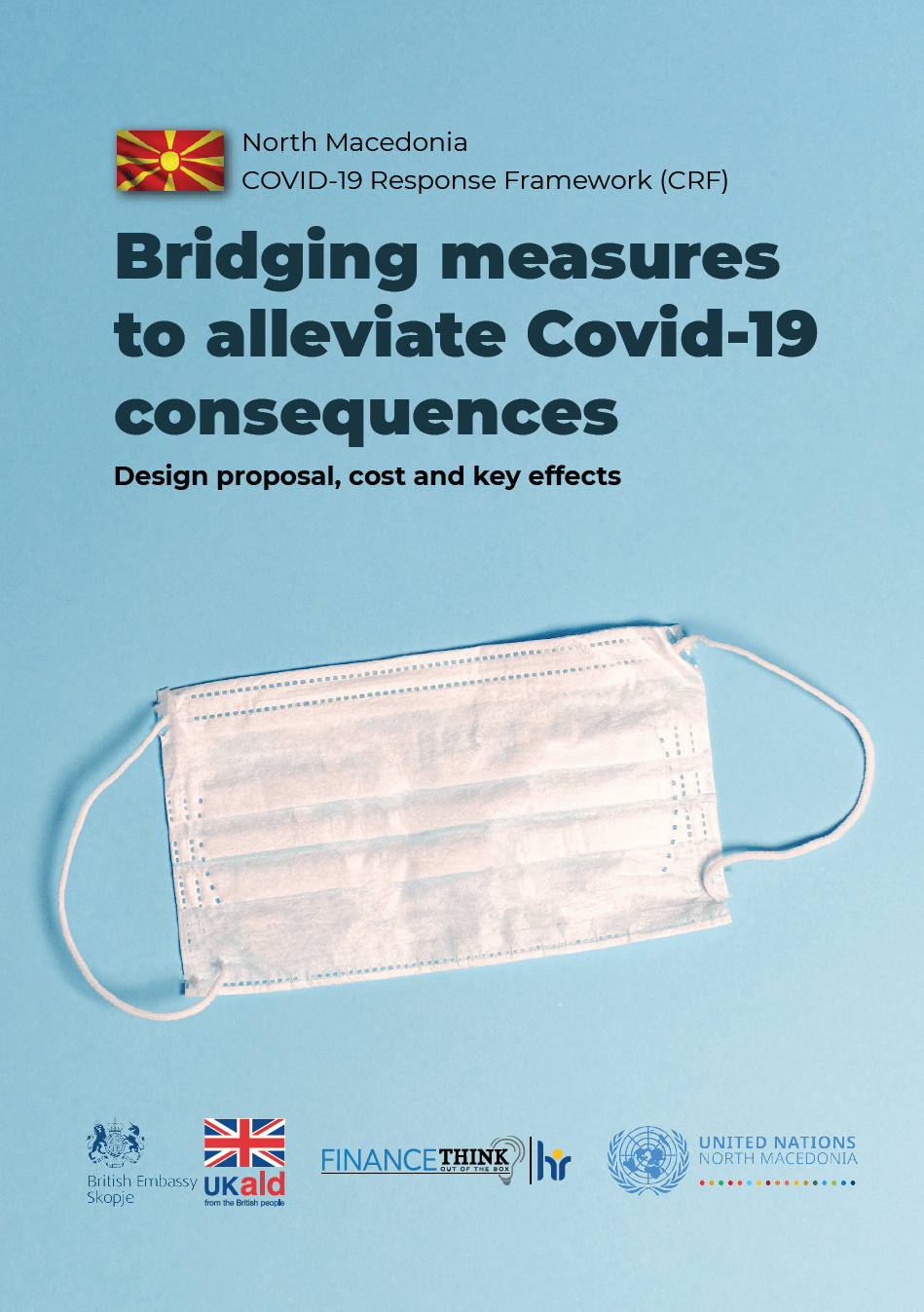The economic forum on the socio-economic effects of Covid-19 has been successfully completed
We organized the Economic Forum together with our partners, the United Nations family in North Macedonia. The forum was addressed by prominent stakeholders: policy makers, representatives of international institutions and the academic community. Click for gallery.
Economic Forum on the Socio-Economic Consequences of Covid-19
Finance Think contributed to the creation of the UN Country Country Analysis
The document is being prepared for the first time and can be downloaded here: bit.ly/37p8JFP
Citation: “Europeans spend the most on utilities, Macedonians on food”
Happy 8th birthday, Finance Think!
Follow-up to the assessment of the socio-economic impact of COVID-19 on children
The goal of the follow-up to the assessment of the social and economic impact of COVID-19 on children, is to generate scenarios and expanded policy proposals in a situation where it is certain that this will be a protracted crisis, both from a health and from a socio-economic perspective, and where we can verify the validity of the initial assumptions of its nature and duration.
Client: UNICEF


